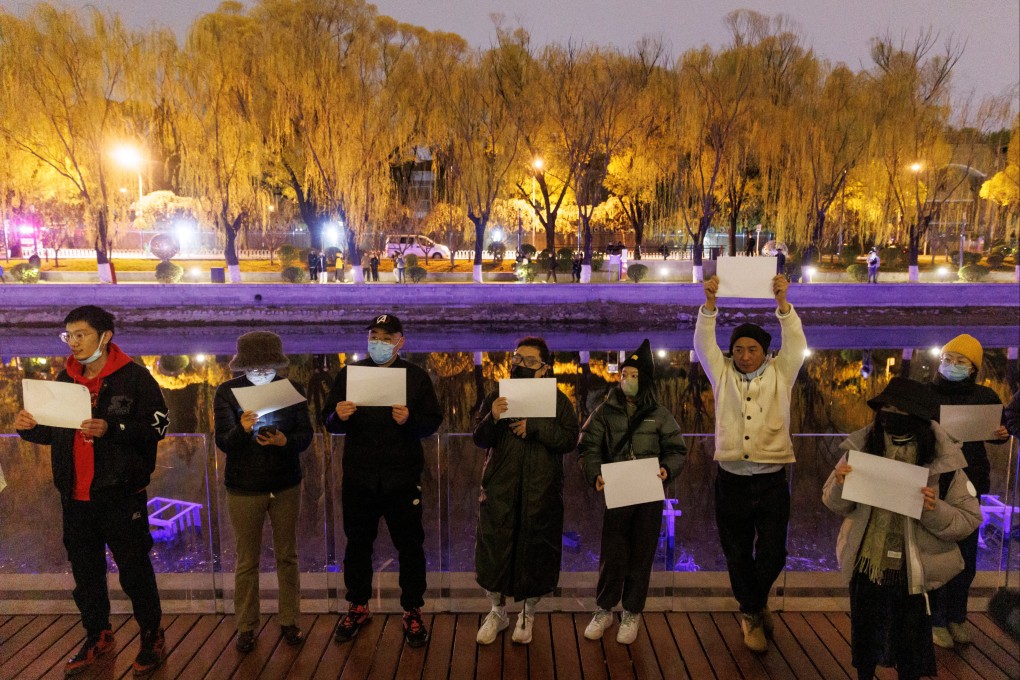Diplomat blames ‘foreign forces’ for boosting China’s Covid-19 protests
- Beijing’s envoy to France says protesters’ anger at local government failures was taken advantage of by those who want to ‘destroy’ China
- Lu Shaye was speaking to journalists in the first public comments on the disturbances in Beijing, Shanghai, Guangdong and other places

A transcript of Lu Shaye’s comments to journalists at a reception on December 7 was published on the embassy’s website and marks the first time a Chinese official has talked publicly about the rare scenes that erupted in Beijing, Shanghai, Guangdong and other places.
“In the beginning, I think the Chinese public initiated the protests to express their dissatisfaction [with] how local governments have failed to fully implement the central government’s policies. But the protests were soon being taken advantage of by foreign forces,” Lu said.
Over 10 days in late November, protesters called for an end to prolonged lockdowns and Covid-19 testing. Some held up blank sheets of white paper, while a few called for the Communist Party and even President Xi Jinping to step down.
The spark for the protests was a fire in a block of flats under lockdown in the western region of Xinjiang, in which at least 10 people were reported to have died. The deaths were widely blamed on delays caused by Covid-19 restrictions, an allegation denied by the local government.